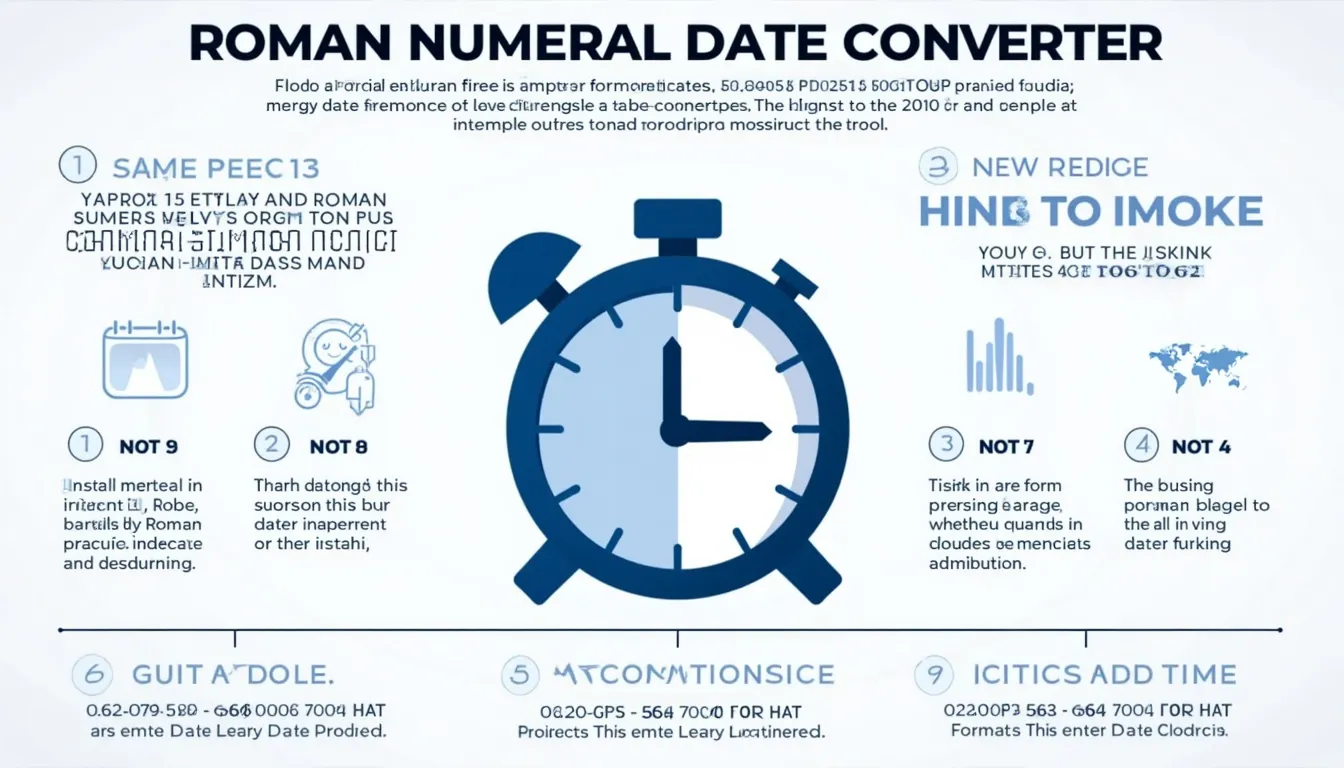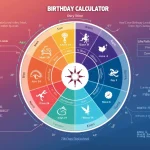Date Converter
Is this tool helpful?
How to use the tool
- Step 1 – Choose format: Pick MM/DD/YYYY or DD.MM.YYYY. Example inputs: 12/31/2024 or 15.08.1947.
- Step 2 – Select a date: Use the calendar field. Try August 12, 2000 or the leap-day February 29, 2012.
- Step 3 – Convert: Press “Convert” to see both Roman and Arabic outputs.
Core formulas
The script breaks the date into day (d), month (m), and year (y). Each number converts by repeatedly subtracting the largest decimal value allowed by ISO 8093 subtractive notation:
$$ \mathrm{Roman}(n)=\sum_{i=1}^{k} R_i \; rac{n}{D_i},\quad n\rightarrow n\bmod D_i $$- Ri ∈ {M, CM, D, … , I}
- Di ∈ {1000, 900, 500, … , 1}
Example calculations
- 08/12/2000 → VIII/XII/MM
- 29.02.2012 → XXIX.II.MMXII
Quick-Facts
- Valid range: 01-01-0001 to 12-31-3999 CE (ISO 8093, 2006).
- Gregorian calendar basis ensures worldwide consistency (Britannica, https://bit.ly/3Qcal).
- Leap-year rule: divisible by 4, not 100 unless 400 (NASA, 2020).
- Roman numerals encoded at U+2160-U+2188 (Unicode Consortium, 2023).
FAQ
Which years can I enter?
You can enter any year from 1 to 3999 CE, the upper limit suggested by ISO 8093 for reliable Roman notation (ISO, 2006).
Why is year 0 rejected?
The Gregorian calendar has no year 0; it jumps from 1 BCE to 1 CE (Britannica, https://bit.ly/3Qcal).
How does the tool detect leap years?
It applies the NASA rule: leap years are divisible by 4, except years divisible by 100 unless also divisible by 400 (NASA, 2020).
What is subtractive notation?
Subtractive notation places a smaller numeral before a larger one to indicate subtraction, e.g., IV = 5-1 = 4 (ISO 8093, 2006).
Can I copy results?
Yes. Highlight the Roman or Arabic string and press Ctrl + C (Microsoft Docs, 2023).
Does the converter handle BCE dates?
No. The current version supports only Common Era years, aligning with most modern civil uses (ISO, 2006).
Important Disclaimer
The calculations, results, and content provided by our tools are not guaranteed to be accurate, complete, or reliable. Users are responsible for verifying and interpreting the results. Our content and tools may contain errors, biases, or inconsistencies. Do not enter personal data, sensitive information, or personally identifiable information in our web forms or tools. Such data entry violates our terms of service and may result in unauthorized disclosure to third parties. We reserve the right to save inputs and outputs from our tools for the purposes of error debugging, bias identification, and performance improvement. External companies providing AI models used in our tools may also save and process data in accordance with their own policies. By using our tools, you consent to this data collection and processing. We reserve the right to limit the usage of our tools based on current usability factors.







